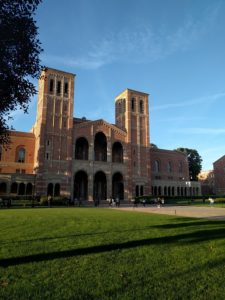Historically, housing has been a problem in California. Getting affordable housing is a bit like finding a four-leaved clover or finding a needle in a haystack; it just does not happen very often. And then for those who do manage to secure a good landlord with a reasonable price, if they then have to move, they need to start the process all over again.
Enter Elvina Beck, founder and CEO of Podshare. An ambitious Soviet Union immigrant, she grew up believing “there [was] nothing [she] couldn’t do.” And so she created Podshare to solve the LA housing crisis. She explains:
“PodShare offers co-living across the city of Los Angeles for one affordable rate. Our custom built ‘pods’ are a re-design of the American bunk bed, and our layout is set for the maximum number of social collisions and security. We are currently in DTLA Arts District, Los Feliz, Hollywood/Vine and opening Venice in April 2017. With 3 locations on the East side, and our first on the West side, we plan to expand to a total of 10 LA county locations to become the first subscription-based housing model. Imagine going to sleep off Hollywood Blvd., jumping on the WIFI in the Arts District, sunbathing in Venice, popping your big jacket into a locker in Los Feliz and grabbing a bicycle, shower, food in the kitchen, and meeting friends from all over the world for $50 a night.
Like a gym membership for shared living or a Euro-rail pass to a flexible, affordable, and centrally located place to live and work – PodShare’s goal is to expand to San Francisco and San Diego in order to allow freelancers, digital nomads, travelers, and apartment hunters try living in different places before they settle down for an annual lease or maybe then never do and PodShare becomes the new mobile home?”
PodShare opened its fifth location in L.A. this year and is increasing in popularity. Tenants usually have their own bed-areas (pods) but share public space like kitchens, bathrooms, living space. Rent is substantially lower and the buildings are generally managed by a company different from the owner – often a local developer.
One happy customer – Nadya Hewitt claims she would never be able to afford the area without PodShare. She said:
“Oh my gosh. I’ve looked at studio apartments in this area, in Hollywood, downtown. I mean we’re looking at almost $2,000 a month.”







